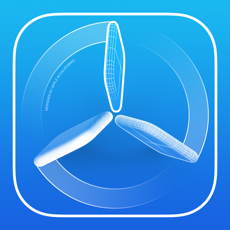
VMware LLC is an American cloud computing and virtualization technology company headquartered in Palo Alto, California. VMware was the first commercially successful company to virtualize the x86 architecture.
Webroot Inc. is an American privately-held cybersecurity software company that provides Internet security for consumers and businesses. The company was founded in Boulder, Colorado, US, and is now headquartered in Broomfield, Colorado, and has US operations in San Mateo and San Diego, and globally in Australia, Austria, Ireland, Japan and the United Kingdom.
Wrike, Inc. is an American project management application service provider based in San Jose, California. Wrike also has offices India, Dallas, Tallinn, Nicosia, Dublin, Tokyo, Melbourne, and Prague.
A mobile development framework is a software framework that is designed to support mobile app development. It is a software library that provides a fundamental structure to support the development of applications for a specific environment.

Xamarin is a Microsoft-owned San Francisco-based software company founded in May 2011 by the engineers that created Mono, Xamarin.Android and Xamarin.iOS, which are cross-platform implementations of the Common Language Infrastructure (CLI) and Common Language Specifications.

Niantic, Inc. is an American software development company based in San Francisco. Niantic is best known for developing the augmented reality mobile games Ingress and Pokémon Go. The company was formed as Niantic Labs in 2010 as an internal startup within Google. The company became an independent entity in October 2015 when Google restructured under Alphabet Inc. Niantic has additional offices in Bellevue, Los Angeles, Sunnyvale, Seattle, Lawrence, Tokyo, London, Hamburg, and Zürich.
Samsung Knox is a proprietary security and management framework pre-installed on most Samsung mobile devices. Its primary purpose is to provide organizations with a toolset for managing work devices, such as employee mobile phones or interactive kiosks. Samsung Galaxy hardware, as well as software such as Secure Folder and Samsung Wallet, make use of the Knox framework.

Appcelerator is a privately held mobile technology company based in San Jose, California. Its main products are Titanium, an open-source software development kit for cross-platform mobile development, and the Appcelerator Platform.
AirWatch was an Atlanta-based provider of enterprise mobility management (EMM) software and standalone management systems for content, applications and email. AirWatch was acquired by VMware, Inc. in February 2014.

Wear OS is a version of Google's Android operating system designed for smartwatches and other wearables. By pairing with mobile phones running Android version 6.0 "Marshmallow" or newer, or iOS version 10.0 or newer with limited support from Google's pairing application, Wear OS integrates Google Assistant technology and mobile notifications into a smartwatch form factor. Wear OS is closed-source, in contrast to the free and open-source Android.
Chartboost is a San Francisco-based mobile game in-app programmatic advertising and monetization platform. Chartboost SDK enables developers to monetize on their mobile apps and connect advertisers to global in-app inventory. Chartboost's platform allows video game developers to create customized interstitial and video ads to promote new games. Developers have direct access to game data derived from Chartboost-enabled games. As of 2016, Chartboost had been integrated into more than 300,000 games with 40 billion game sessions per month.
Firebase was a company that developed backend software. It was founded in San Francisco in 2011 and was incorporated in Delaware.

Good Technology, owned by BlackBerry Limited, is a mobile security provider headquartered in Sunnyvale, California, United States. The company serves more than 5,000 organizations worldwide in industries such as financial services, healthcare, manufacturing, energy and utilities, legal, government, and technology. Good makes products for managing and securing mobile devices in a business environment. The company focuses on securing apps and data on mobile devices.
Onavo, Inc. was an Israeli mobile web analytics company that was purchased by Facebook, Inc., who changed the company's name to Facebook Israel. The company primarily performed its activities via consumer mobile apps, including the virtual private network (VPN) service Onavo Protect, which analysed web traffic sent through the VPN to provide statistics on the usage of other apps.

TestFlight is an online service for over-the-air installation and testing of mobile applications, currently owned by Apple Inc. and only offered to developers within the iOS Developer Program. Developers sign up with the service to distribute applications to internal or external beta testers, who can subsequently send feedback about the application to developers. The TestFlight SDK additionally allows developers to receive remote logs, crash reports and tester feedback.
John D. Marshall is an American entrepreneur and inventor. He is the co-founder and former president and CEO of AirWatch, which VMware acquired for $1.54 billion in 2014. He served as co-chairman at a software start-up called OneTrust till March 2023.
Firebase Cloud Messaging (FCM), formerly known as Google Cloud Messaging (GCM), is a cross-platform cloud service for messages and notifications for Android, iOS, and web applications, which as of May 2023 can be used at no cost. Firebase Cloud Messaging allows third-party application developers to send notifications or messages from servers hosted by FCM to users of the platform or end users.
Crashlytics was a Boston, Massachusetts-based software company founded in May 2011 by entrepreneurs Wayne Chang and Jeff Seibert. Crashlytics helps collecting, analyzing and organizing app crash reports.

Puffin Browser is a remote browser developed by CloudMosa, an American mobile technology company founded by Shioupyn Shen.
HarmonyOS (HMOS) is a distributed operating system developed by Huawei for smartphones, tablets, smart TVs, smart watches, personal computers and other smart devices. It has a microkernel design with single framework: the operating system selects suitable kernels from the abstraction layer in the case of devices that use diverse resources.






